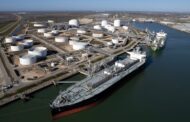The idea of oil supply peaking, or so-called peak oil, surfaced as early as the 1880s, with some predicting a looming exhaustion in the US due to the demise of the Pennsylvania oil fields. US and global oil production, however, was still increasing over 70 years later, when the ‘peak oil theory’ of geologist Marion King Hubbert gained traction in 1956.
Hubbert predicted a global peak in crude oil production around 2000 at a level of about 34 million barrels a day (mb/d). In reality, this level was reached in 1967 and global crude oil production was over 65 mb/d by the turn of the century.
Debates on peak oil supply resurfaced again in the 1990s and 2000s, with geologist Colin Campbell stating in the late 1990s that global oil production would peak around 2004 or 2005, after which the world would have to rely on ever-dwindling, more expensive oil, with huge consequences for the global economy. In 2006, oil financier Matthew Simmons said that global oil production may have peaked in 2005.















